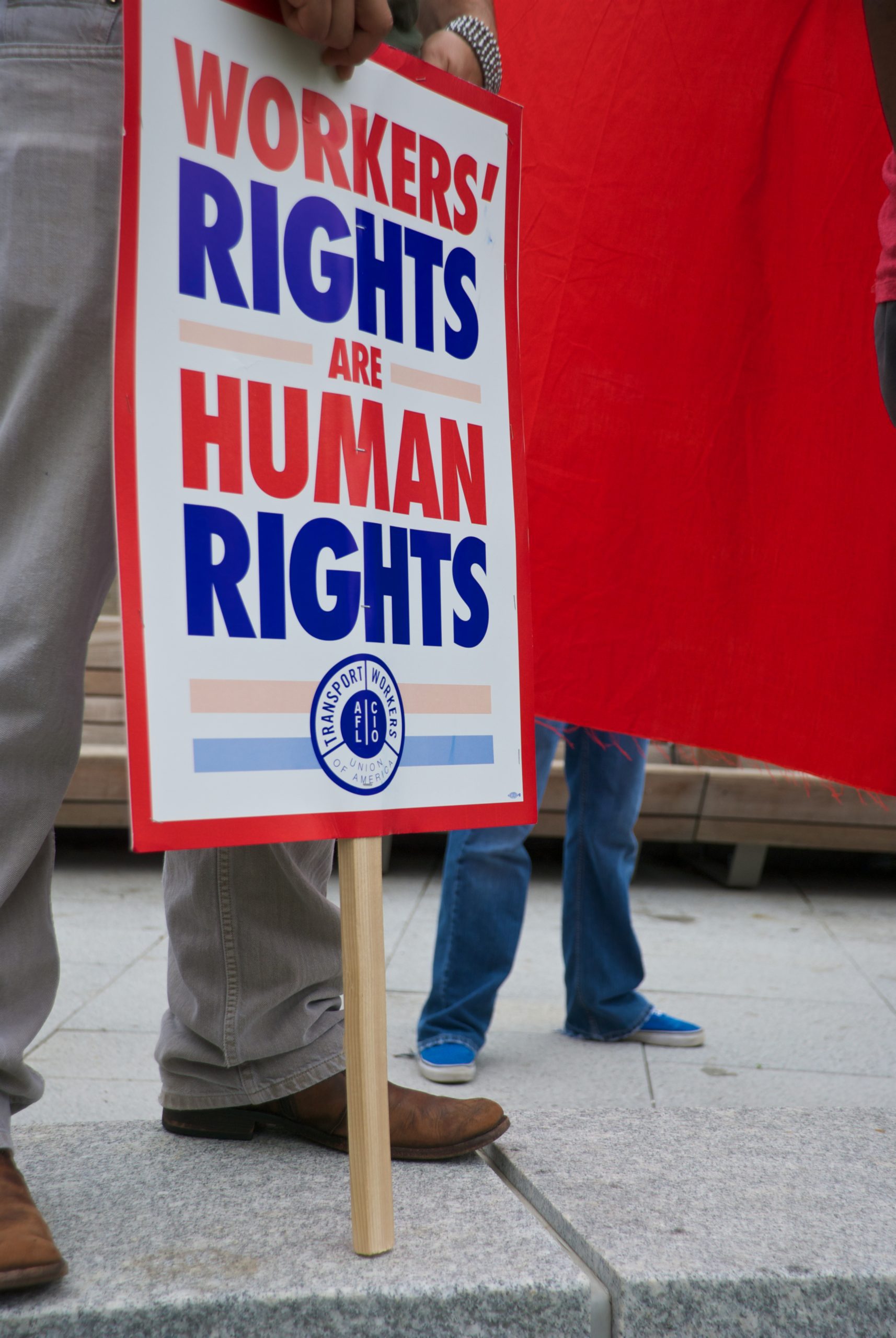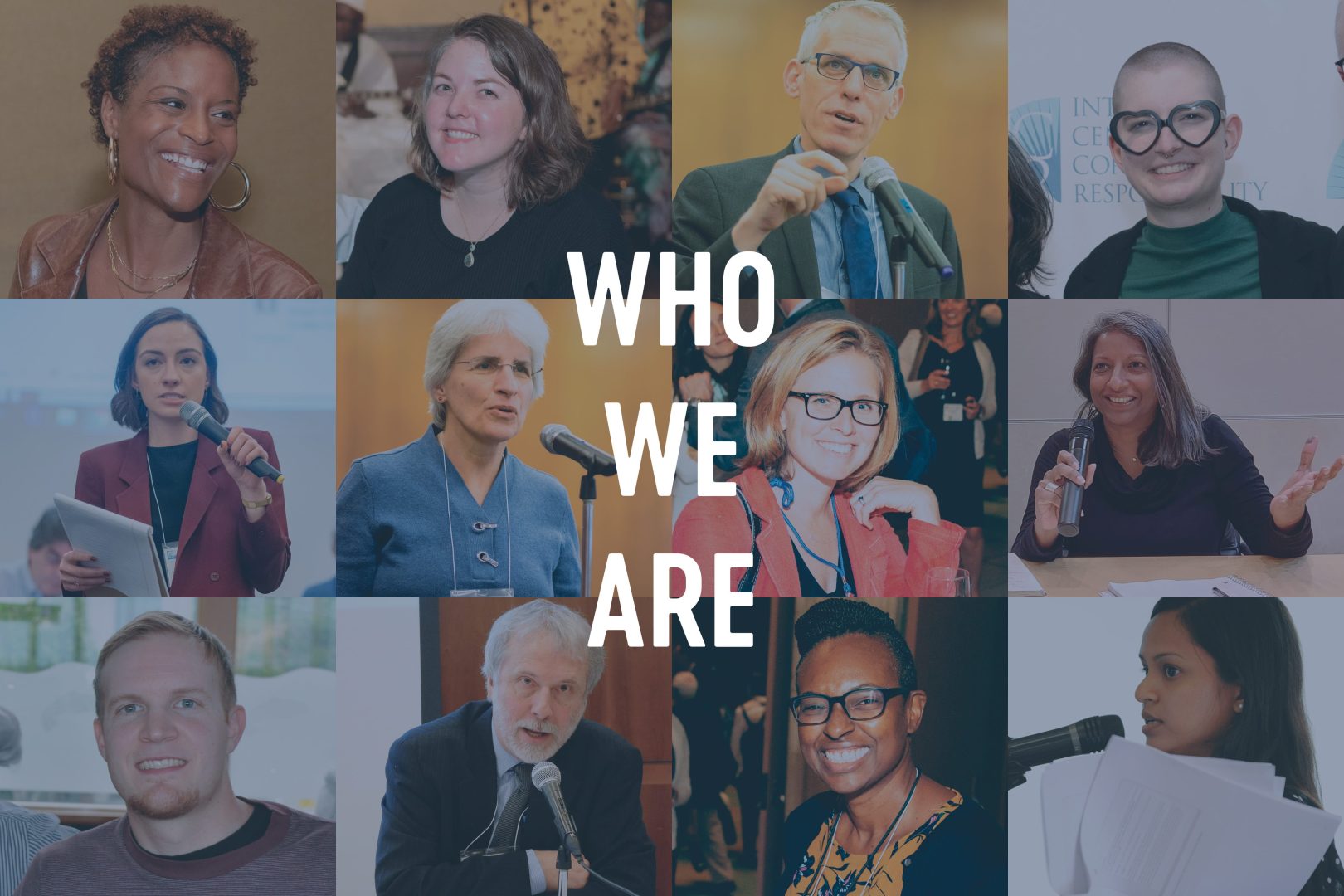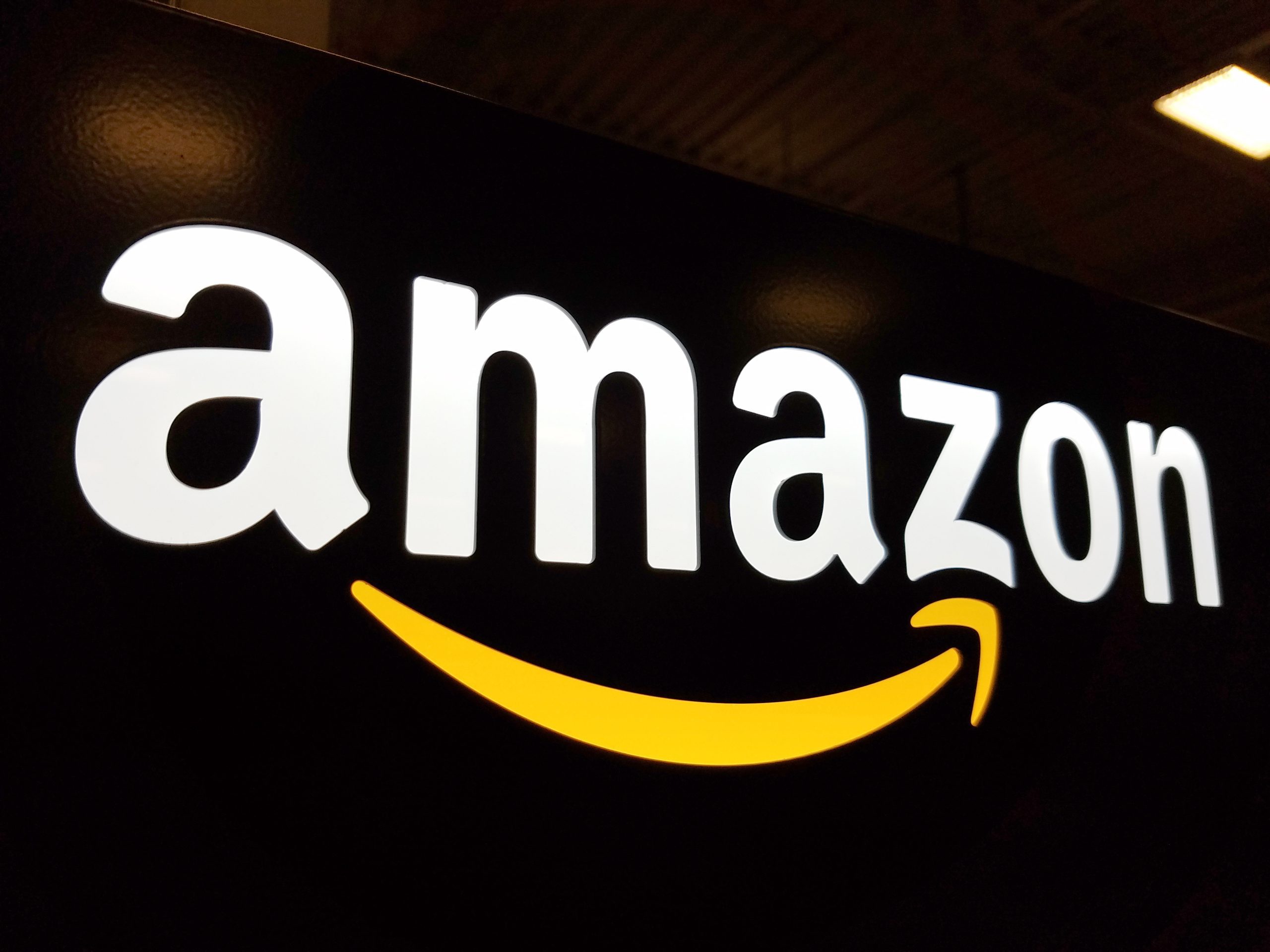Worker Justice Rises to the Top of Investors’ Agenda at 2023 Annual Meetings

A group of 37 shareholder proposals centered on worker health & safety, paid sick leave, wages & equity, freedom of association, and workplace sexual harassment will go to votes at upcoming AGMs.
NEW YORK, NY, THURSDAY, APRIL 27TH, 2023 – This spring, a wave of shareholder proposals seeking improved corporate policies and practices related to a panoply of worker rights issues will be going to a vote at annual meetings of shareholders across the country.
Members of the Interfaith Center on Corporate Responsibility (ICCR) have 37 worker rights proposals on the proxies of 30 companies, a testament to how investors view risks to workers as material to a company’s financial performance. The proposals, available at this link, collectively reinforce long-standing worker concerns investors say have contributed to persistent and systemic inequities.
Said Nadira Narine, ICCR’s Sr. Program Director for Strategic Initiatives, “When workers aren’t given a seat at the table or respected as valuable corporate stakeholders, racial and economic disparities become more intractable and systemic which threatens everyone. By contrast, when worker dignity, safety, and voice are prioritized, everyone prospers - something to bear in mind as we prepare to celebrate May Day”.
Several proposals raise concerns about worker health & safety. One proposal at Dollar General calls for a third-party audit on the impact of company policies on the safety and well-being of workers. Said Mary Beth Gallagher of Domini Impact Investments who filed the proposal, “We are asking Dollar General to evaluate how its business model and factors like understaffing, a lack of in-store security, and low wages put its workers’ safety at risk, so it can make changes across its 19,000 stores. Dollar General is an Occupational Safety and Health Administration (OSHA) “Severe Violator”, receiving $15 million in fines since 2017. We are concerned the problems are systemic and widespread.”
A group of six proposals calls for paid sick leave (PSL) as a standard benefit. The plight of the 28 million workers lacking PSL first received attention during the pandemic when front-line workers faced the impossible choice when sick of either staying home and risking their economic stability, or going to work and risking their health and the public’s health.
"We strongly believe that paid sick leave (PSL) is an essential part of universal workers’ rights and also good for business,” said Ahmed Aljuboori of Figure 8 Investment Strategies who filed a proposal at $TJX requesting a policy stipulating PSL as a standard benefit. “PSL will benefit both TJX and its employees as it will boost productivity, reduce turnover, and lead to increased workplace stability. Adding a permanent PSL policy covering all TJX Associates is both morally and economically the right thing to do."
Fifteen proposals highlight wage inequities as a systemic issue and a portfolio risk. One such proposal filed at Marriot ($MAR) asks the company to report annually on unadjusted median and adjusted pay gaps across race and gender globally and/or by country, where appropriate, including associated policy, reputational, competitive, and operational risks, and risks related to recruiting and retaining diverse talent.
“Thanks to investor pressure, Marriot will disclose adjusted pay equity ratios by gender and race for U.S. employees this year,” said Jim McRitchie of CorpGov.net. “But unadjusted pay gaps show ‘who is swimming naked when the tide goes out’, borrowing from Buffett. When minorities and women hold as many high-paying jobs as white men, we all do better. We only know that when unadjusted pay gaps are also reported.”
Another proposal filed by Canadian investor SHARE at Restaurant Brands International ($RBI), parent company of Tim Hortons, Burger King, and Popeyes, seeks to understand how the company will address labor shortages resulting from the “big quit” due to working conditions including low wages and benefits.
“For Tim Hortons the promise to consumers is a double-double: ’20-minute fresh’ coffee, served to you promptly by a friendly face – whether in the drive-thru on the way to hockey practice or at the start of your workday,” said Anthony Schein, Director of Shareholder Advocacy. “Every Tim Hortons, Popeyes, or Burger King franchise owner depends on a skilled workforce to build a loyal base of customers. We are asking the company to report on how it is supporting franchise owners in light of a historically competitive labor market across North America.”
“For too long, our system has given more and more to those sitting in the C Suite and less and less to those who are living paycheck to paycheck,” said Matthew Illian of United Church Funds who filed a proposal at Dollar Tree requesting a report on whether Dollar Tree prioritizes Company financial performance over the systemic risks created by income inequality and racial and gender disparities. “We have a moral obligation to hold corporations accountable for how they have enabled economic inequality to grow and we must find new ways to support those who are simply seeking to earn a living wage.”
Another group of eight proposals centers on workers’ right to freedom of association and collective bargaining. One such proposal filed at Delta Airlines ($DAL) asks the company to adopt and disclose a Non-interference Policy (“Policy”) upholding the rights to freedom of association and collective bargaining in its operations.
“We need to see that workers are unobstructed in their decisions about how to represent themselves with management,” said Ivan Frishberg of Amalgamated Bank which led the filing at Delta. “Interference with that process creates an unnecessary risk to the company and undermines the relationship with its employees, which by the company’s own description are its ‘most worthy investment.’”
Vote outcomes for worker-related 2023 proposals that have already gone to a vote are available at this link.
About the Interfaith Center on Corporate Responsibility (ICCR)
The Interfaith Center on Corporate Responsibility (ICCR) is a broad coalition of more than 300 institutional investors collectively representing over $4 trillion in invested capital. ICCR members, a cross-section of faith-based investors, asset managers, pension funds, foundations, and other long-term institutional investors, have over 50 years of experience engaging with companies on environmental, social, and governance (“ESG”) issues that are critical to long-term value creation. ICCR members engage hundreds of corporations annually in an effort to foster greater corporate accountability. Visit our website www.iccr.org and follow us on Twitter, LinkedIn, and Facebook.







